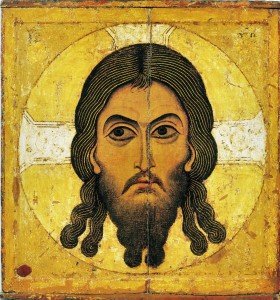 Come then, affliction, if my Father wills, and be my frowning friend. A friend that frowns is better than a smiling enemy.
Come then, affliction, if my Father wills, and be my frowning friend. A friend that frowns is better than a smiling enemy.
—George Macdonald
One of the joys of being on Sabbath Leave this past Fall was getting to read C.S. Lewis’ Narnia series to my children every night before bed.
I am reminded this week of the great Aslan, the Christ figure. Aslan is full of love for all. However, he is terrible at the same time. Terrible, it seems, for to look at him, or rather, to be looked at by him is a terrifying experience—for he sees you, all of you. Over and over, characters like Edmund, Susan, Avaris, Eustace, Jill, and others, all have the experience of their conscience being ‘disturbed’ by his ferocious, noble, loving gaze.
Malanie Blakley in her paper Aslan the Terrible writes:
“Some people talk as if meeting the gaze of absolute goodness would be fun. They need to think again,” observes C.S. Lewis in his book Mere Christianity. But how can something, or someone, be good and terrible at the same time? Is it possible? Indeed it is, as Lewis well knows and illustrates in The Chronicles of Narnia: “People who have not been in Narnia sometimes think that a thing cannot be good and terrible at the same time. If the children had ever thought so, they were cured of it now. For when they tried to look at Aslan’s face they just caught a glimpse of the golden mane and the great, royal, solemn overwhelming eyes; and then they found they couldn’t look at him and went all trembly” (LWW, Ch. 12, 168-69).
It seems the light of Aslan is so penetrating, like a 10,000 watt light bulb exposing all the hidden bits and grime, hypocrisy, not-so-holy motivations, all the things that cloud our goodness and prevent us from living into God’s will. If that is not terrible, I don’t know what is. This is the experience of praying with icons—we are not so much looking at the icon, as the icon is looking at us. We are “under the gaze,” discovering God by being discovered ourselves: gazed at, grasped by the one who knows us deeper than we know our own selves.

The lectionary this week follows last week’s, with Jesus’ reading of the Prophet Isaiah. At first folks are thrilled to have one of their own offering such wisdom, but things turn quickly sour when Jesus challenges their assumptions, their judgements, their common social and religious life:
They got up, drove him out of the town, and led him to the brow of the hill on which their town was built, so that they might hurl him off the cliff (Luke 4:29).
I am not so sure I would not be one of the ones chasing him. Who likes to have their lifestyle challenged? I don’t want to be reminded of what a consumer I am. I resist having my selfishness or hypocriticalness exposed. What about my judgement of others, my addictions, my less than holy motivations of appearing good, likeable, and successful? It seems that my friends and the world around me would rather smile and cheer me on. But am I really willing to follow this Son of Man?
Jesus is the most terrifying of friends.
George Macdonald, C.S. Lewis’ foremost inspiration, writes:
How many people would like to be good, if only they might be good without taking trouble about it! They do not like goodness well enough to hunger and thirst after it, or to sell all that they have that they may but it; they will not batter at the gate of the kingdom of heaven; but they look with pleasure on this or that aerial castle of righteousness, and think it would be rather nice to live in it.
Guilty as charged. God of love—terrifying love, have mercy on me, a sinner.

By Vivienne McKinney January 28, 2016 - 1:39 pm
Inverted perspective. Icons stylistically elongated, inverted perspective draws viewer in, window to heaven
By Tony Houghton January 28, 2016 - 5:03 pm
Great article.So true ,when we come up against the holiness of God and see Him as He is ,we then see ourselves as we truly are. It reminds me of Isaiah,a “righteous” man , and when he encountered the holiness of God ,he call down a curse on himself.
By Donna Ellis February 3, 2016 - 2:29 pm
I didn’t grow up with CS Lewis either in my life, so I had never had the experience of Asland until I became and parent reading it to my children. However I experienced Jesus in a dream many years previous to reading the Narnia series. In the dream I came face to face with Jesus and He looked into my eyes and I could feel Him looking directly into my soul. I felt shame for what he saw there and looked down. When I looked up again all I saw was incredible and unconditional love in His eyes.
I experienced this at a time in my life full of self doubt about who I was and where I was being called to. (Youth and Children’s Ministry) This dream was such a gift. I was able to move on and continue working in the Ministry and felt that as flawed as I am, God loves me no matter what and could and wanted to use me to His glory. I am fearfully wonderfully made…..All of me.
By Gregor Sneddon February 4, 2016 - 2:44 am
Amen! Thanks Donna!